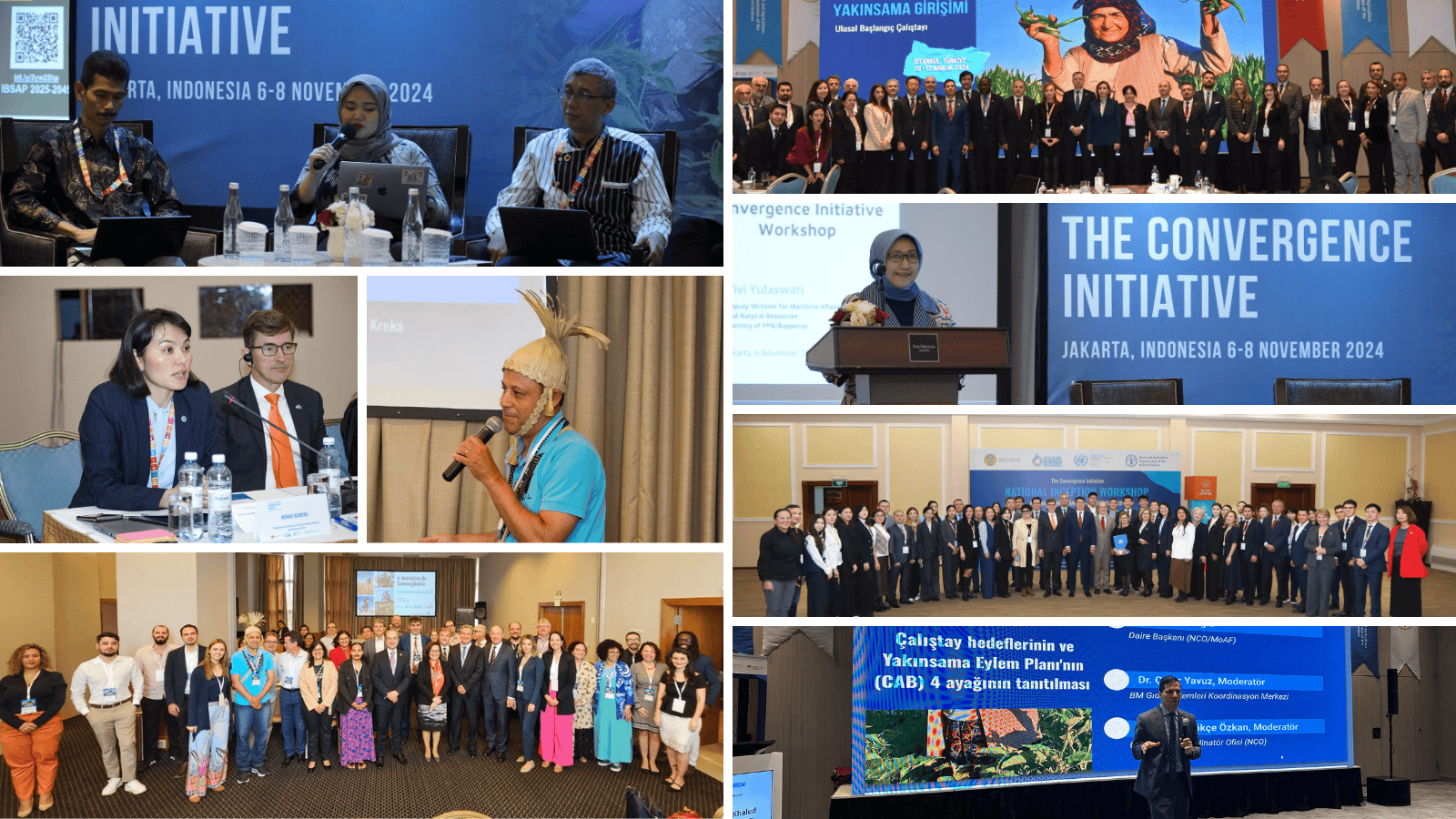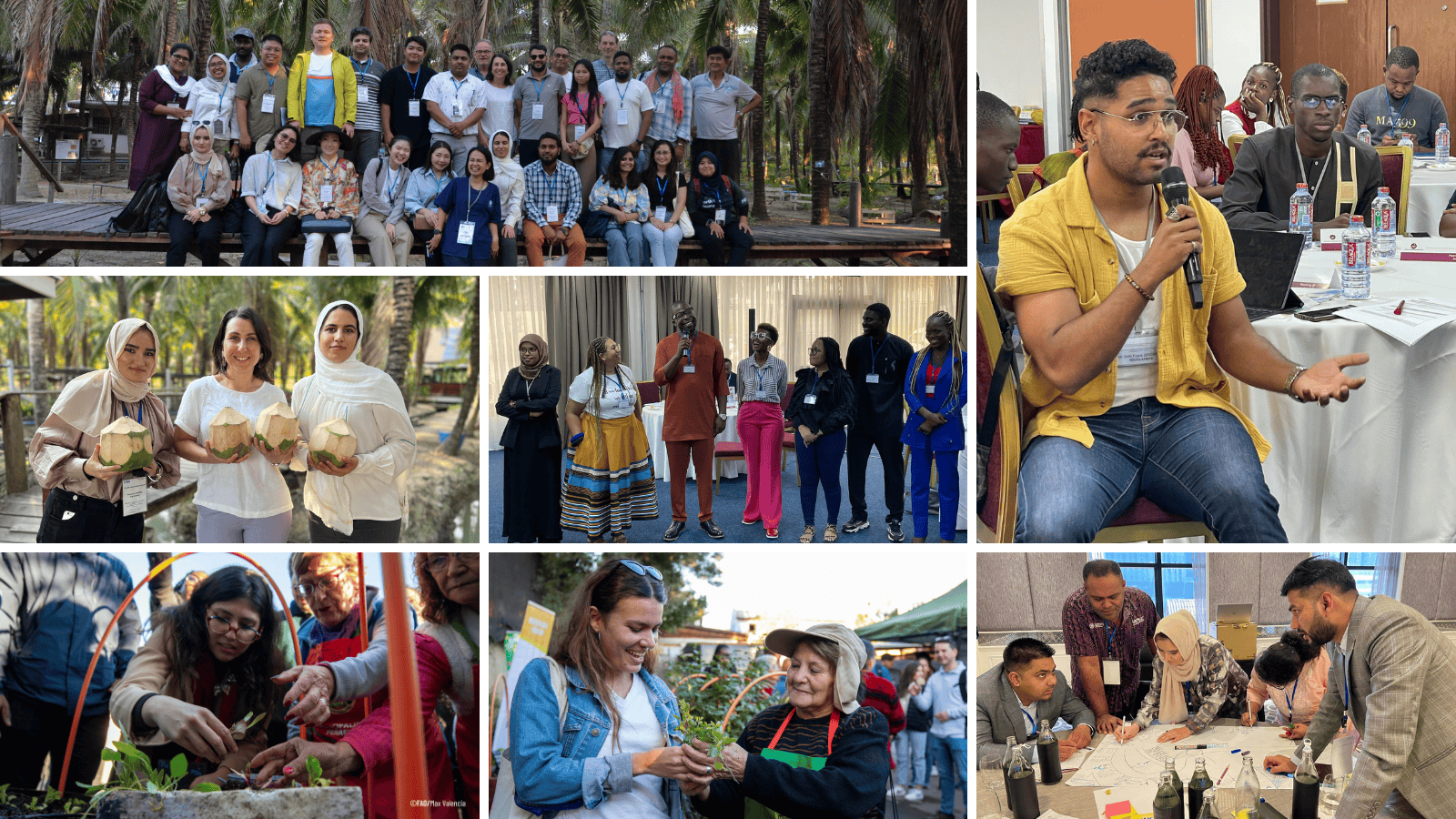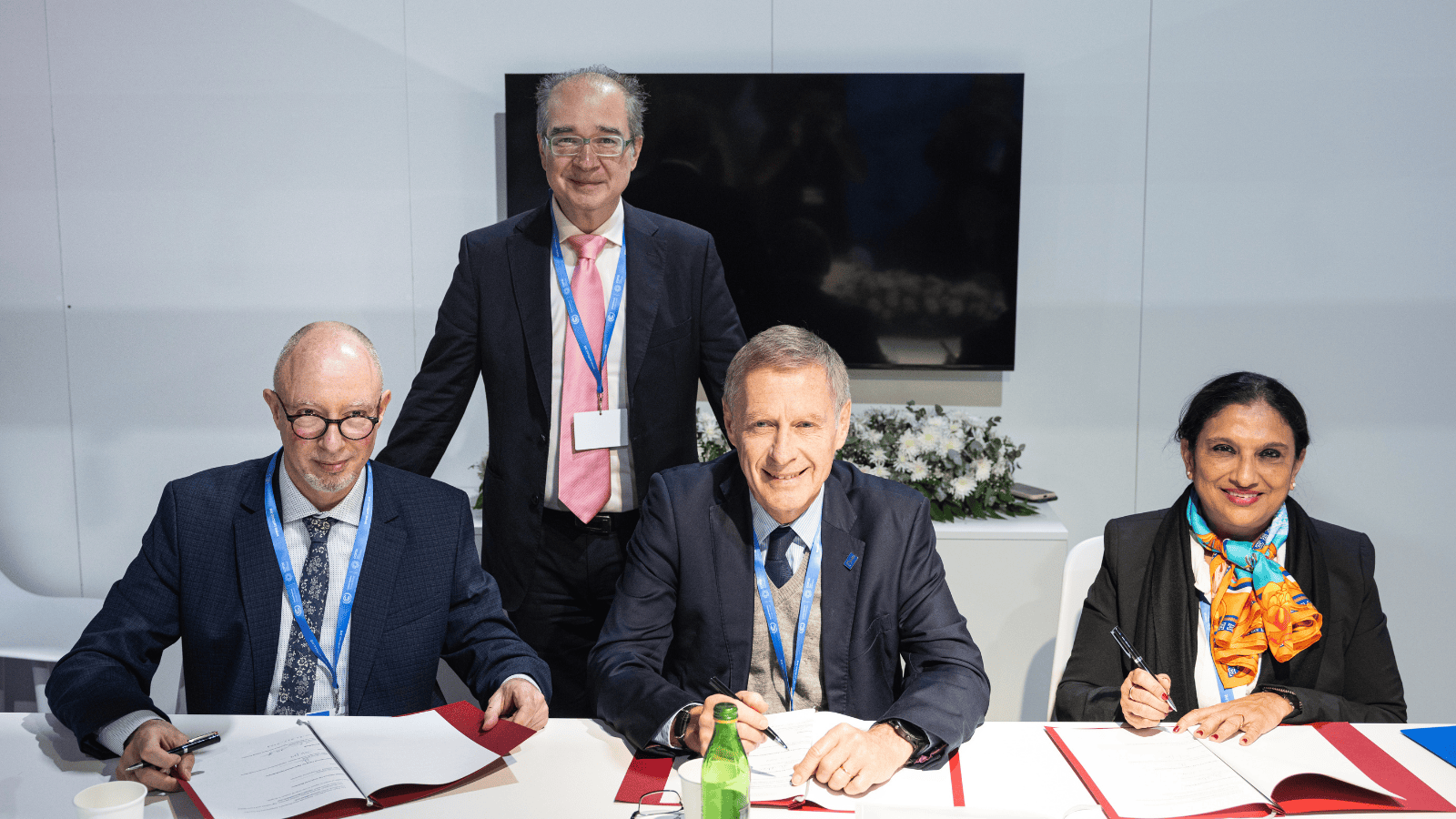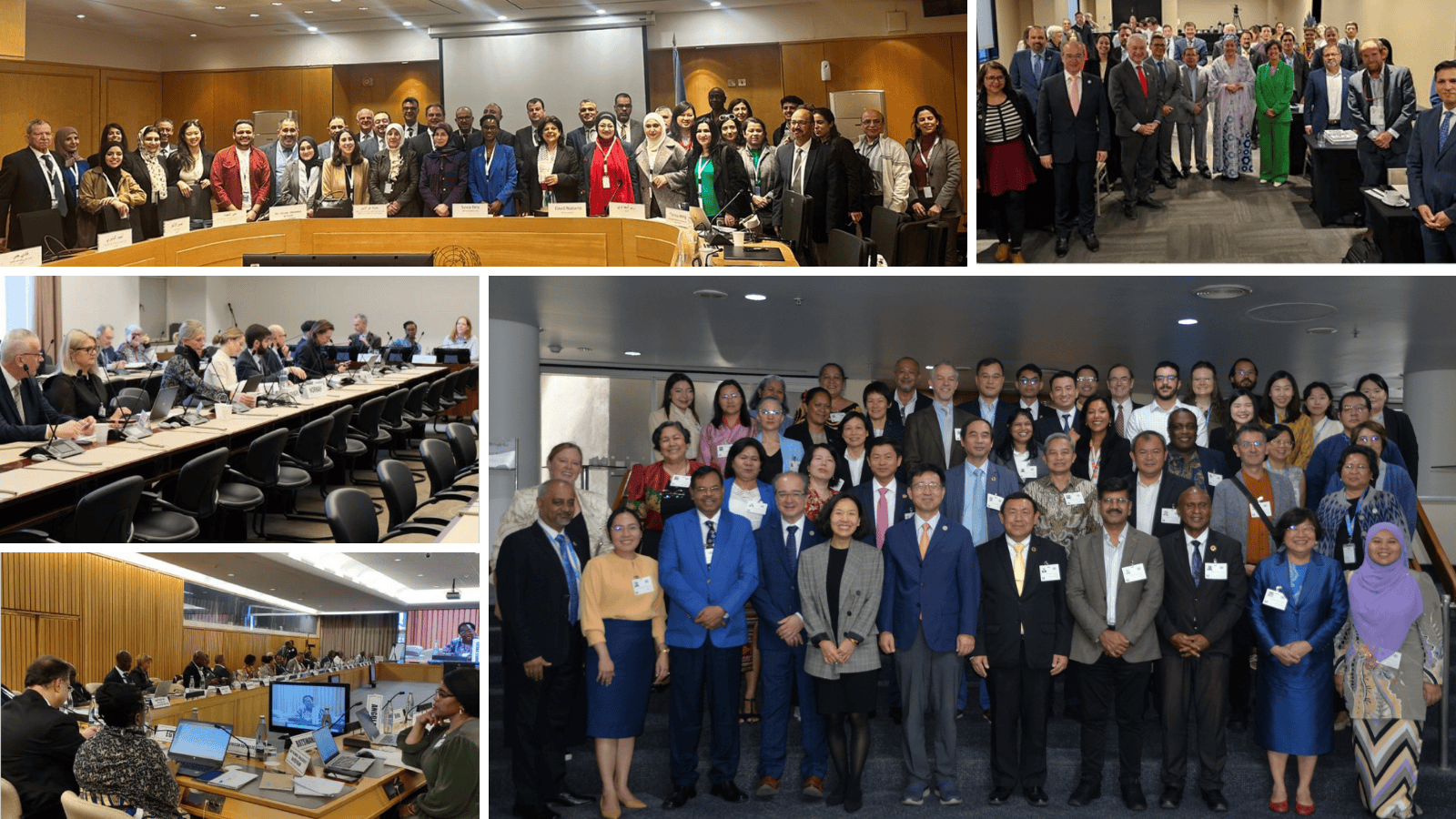SEED FUNDING JOINT PROGRAMMES
Egypt
Strengthening Sustainable and Resilient Food and Nutrition Systems in Egypt for SDG Acceleration




PROJECT TITLE | Strengthening Sustainable and Resilient Food and Nutrition Systems in Egypt for SDG Acceleration |
| Context | Egypt engaged actively in the 2021 Food Systems Summit process, convening a national dialogue and developing national pathways with recommended interventions for improving food security and nutrition by 2030. To enhance multi-sectorial coordination and spearhead the transformation process, the Government created a National Committee for Food and Nutrition Systems chaired by the Prime Minister and bringing together several ministries to coordinate joint actions. Strengthening coordination mechanisms, fostering multi-stakeholder partnerships, consolidating accountability structures, focusing on the availability of evidence, analysis, and data, are identified as key priorities to strengthen the food systems governance structure in Egypt. |
| PUNOs | WFP, FAO, UNICEF |
| Contribution to SDGs | SDG 2 Zero Hunger, SDG 3 Good Health and Well-being, 12 Responsible Consumption and Production. |
| Contribution to other SDG transitions | Climate, biodiversity, pollution |
| Duration | June 2024 – May 2025 |
| Expected financial leverage | $87,000 (PUNO co-financing) |
| Alignment with SG Call to Action | Policy integration; Food systems governance; Research, data, technology and innovation; Inclusive and participatory design; Private sector engagement |
| Outcomes | The JP contributes to strengthening policy and governance frameworks for food systems transformation and generating evidence and analysis on key dimensions of food systems to inform decision-making, supporting the work of the National Committee for Food and Nutrition Systems. The JP complements the government’s flagship program “Country Platform for the Nexus of Water, Food and Energy”, which provides a mechanism to mobilize climate finance and private investments. |
| Partners |
|
| Outputs |
|
Reflecting on progress, advancing together: A 2024 holiday message
A year-end message from the Hub Director, Stefanos Fotiou, reflecting on 2024's progress and collective efforts in food systems transformation.

Dear Food Systems Colleagues and Partners,
As we close 2024, I reflect on the collective efforts that have driven the transformation of food systems forward. This year, through collaboration, innovation, and determination, we have made meaningful progress on multiple fronts. These achievements are a testament to the dedication of countries, partners, and stakeholders working together to ensure food systems transformation remains inclusive, accountable, and impactful.
One of the year’s milestones was the launch and initial implementation of the Food Systems and Climate Action Convergence Initiative. This pioneering effort bridges the gap between food systems transformation and climate action, addressing the vicious cycle of climate change and food insecurity. With successful pilot workshops in Kazakhstan, Brazil, Indonesia, and Türkiye, we are already seeing results as countries set pathways to align food systems policies with climate strategies through the co-development of Convergence Action Blueprints. These Blueprints are nationally-owned and provide a framework to achieve the alignment of the agendas and accelerate convergence efforts. Looking ahead, we aim to scale the Convergence Initiative to 20 countries by COP30 and foster regional collaboration at the Regional Forums for Sustainable Development in 2025.

National inception workshops for the Convergence Initiative in Kazakhstan, Brazil, Indonesia and Türkiye.
The Hub remains committed to supporting countries’ national pathway implementation. By fostering inclusive governance structures and platforms, developing national pathway action plans and facilitating incorporation of the pathways into national legal frameworks, policies and plans, we have helped countries operationalize their pathways. This year, Startup Funds supported by Norway enabled 4 countries to develop, update and implement their pathways through participatory, and multi-stakeholder approaches. Additionally, with a grant from Denmark, 20 countries advanced their food systems transformation and governance structures by leveraging inclusive national dialogues. These successes are the result of partnerships that prioritize collective action and country-led approaches to sustainability.
A major advancement this year came through the Joint SDG Fund Food System Window, which supports national food systems pathways with targeted financial aid. The initiative provides two tracks: seed funding (up to USD 250,000) for early-stage solutions and enabling environments, and high-impact funding (up to USD 2 million over two years) to scale successful initiatives. To date, USD 15 million has been mobilized, benefiting 12 seed countries and 6 high-impact countries. With renewed support from the government of Germany, a second funding round is under development, to be launched in 2025.
Empowering youth remains a key focus of our efforts. This year, we launched the UN Food Systems Youth Leadership Programme (YLP) with support from the German Federal Ministry for Economic Cooperation and Development. The programme engaged around 80 young leaders from 65 countries through workshops held in Ghana, Thailand, and Chile, focusing on leadership, systems thinking, science, and policy advocacy. In its second phase, the YLP is piloting strengthened Science-Policy-Society interfaces in six countries, enabling youth-led initiatives to advance national pathway implementation. By driving context-specific solutions and embedding youth perspectives into national food systems policies, these young leaders are shaping inclusive, innovative, and transformative change.

National workshops from the UN Food Systems Youth Leadership Programme (YLP) in Ghana, Thailand and Chile.
Financing has been another significant area of progress. Our partners IFAD and the World Bank successfully piloted the Financial Flows to Food Systems (3FS) tool in Niger, Peru, and Kenya – a mechanism tracking financing across domestic, international, and private sectors. At COP29, we announced a major collaboration with IFAD, the World Bank, and GAIN to scale the 3FS tool to 11 additional countries. This will empower countries to better align financial flows with national priorities, ensuring that resources are directed to areas of greatest impact.

Signing ceremony of the Letter of Intent during COP29 for scaling up the 3FS tool.
The launch of the Corporate Accountability for Food Systems Transformation initiative also stands out as a critical step forward. Developed through collaboration with governments, private sector actors, and civil society, this initiative aims to strengthen transparency, equity, and sustainable practices. Ongoing consultations will ensure that this framework reflects shared priorities and drives meaningful solutions.
Our ongoing Food Systems Solutions Dialogue series with National Convenors explored essential topics such as governance, private sector accountability, inclusive design, financing, and climate action. Similarly, the 2024 Food Systems Transformation Regional Progress Reviews, held alongside the Regional Forums on Sustainable Development, provided critical opportunities to assess progress and identify emerging patterns. These efforts are key as we prepare for the second UN Food Systems Summit (UNFSS+4) Stocktaking Moment in 2025 – a moment to reflect, recalibrate, and accelerate collective action.

2024 Regional Progress Reviews with National Convenors.
This year’s progress is not the result of any one organization or initiative but of collective action and shared vision. I am deeply grateful to all our partners, National Convenors, governments, and stakeholders for their tireless efforts and unwavering commitment. Together, we are demonstrating that meaningful change is possible when we unite behind a common purpose.
As we look to 2025, let us carry this momentum forward, fostering collaboration, action, and hope for a better future for people and the planet.
Wishing you all a happy and restful holiday season and a constructive year ahead.
Warmest regards,
Stefanos Fotiou
Director, UN Food Systems Coordination Hub, on behalf of the Hub team.
